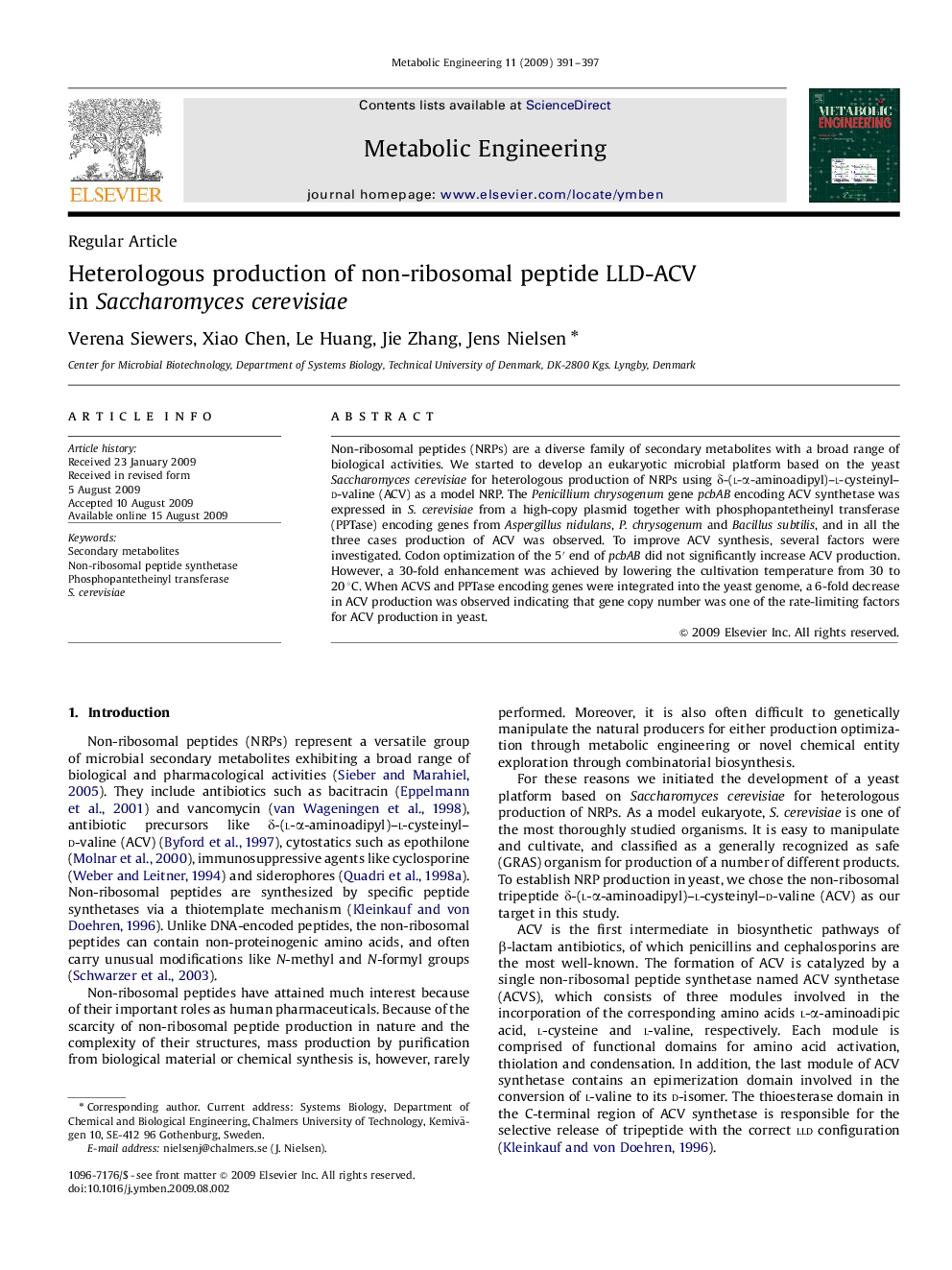| Article ID | Journal | Published Year | Pages | File Type |
|---|---|---|---|---|
| 31799 | Metabolic Engineering | 2009 | 7 Pages |
Non-ribosomal peptides (NRPs) are a diverse family of secondary metabolites with a broad range of biological activities. We started to develop an eukaryotic microbial platform based on the yeast Saccharomyces cerevisiae for heterologous production of NRPs using δ-(l-α-aminoadipyl)–l-cysteinyl–d-valine (ACV) as a model NRP. The Penicillium chrysogenum gene pcbAB encoding ACV synthetase was expressed in S. cerevisiae from a high-copy plasmid together with phosphopantetheinyl transferase (PPTase) encoding genes from Aspergillus nidulans, P. chrysogenum and Bacillus subtilis, and in all the three cases production of ACV was observed. To improve ACV synthesis, several factors were investigated. Codon optimization of the 5′ end of pcbAB did not significantly increase ACV production. However, a 30-fold enhancement was achieved by lowering the cultivation temperature from 30 to 20 °C. When ACVS and PPTase encoding genes were integrated into the yeast genome, a 6-fold decrease in ACV production was observed indicating that gene copy number was one of the rate-limiting factors for ACV production in yeast.
